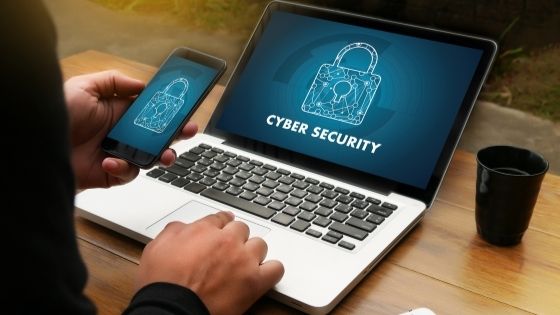When it comes to your business IT, cybersecurity matters a lot, especially as digital threats have been growing in sophistication over the years. Whether you’re a small or large enterprise, knowing how to protect your company is paramount. Below are eight ways to improve your cybersecurity so that you can prevent potential attacks.
Jump Ahead To:
Strong Passwords
Strong passwords are one of the biggest deterrents for cyber-attacks. Hackers are always on the lookout for weak passwords that can be easily infiltrated. To ensure that you’re protected, make sure you use strong passwords that contain a mixture of capital and lower-case letters, numbers, and symbols. Also, make sure you change your password regularly and don’t create ones that contain names or identifying information about you or your company.
Regular Backups
Backups are essential even without the risk of a security breach. Regular backups of your data and files will give you peace of mind should anything happen. When it comes to cybersecurity, it’s a good idea to back up your data offline and ensure it’s backed up on the cloud. You should also do regular checks to ensure the backups are working. To learn more about backups and security operations on the cloud by joining the industry-recognized Microsoft Azure Security certification.
New Security Patches
Another important way to improve your enterprise cyber security is to regularly download security patches for your operating systems, web browser, and other software packages. While software update prompts can be annoying when you’re in the throes of work, they often contain vital security patches that will protect you in the long run.
Anti-Virus Software
Every company should invest in high-quality anti-virus and anti-malware software. If you’re unsure about what kind to get, it’s worth exploring the top packages out there and what they offer. Some of the best ones on the market include:
- Avast Business Antivirus Pro
- Kaspersky Endpoint Security Cloud
- Webroot Business Endpoint Protection
- Bitdefender GravityZone Business Security
- F-Secure SAFE
Implement Training Programs
Even if your business is small, it’s important to deliver training programs on cybersecurity so that your staff are aware of the potential threats. Many of your employees will be the first port-of-call for would-be hackers and phishing scammers, so it’s vital that they’re informed. This includes schooling them on the importance of strong passwords and how to watch out for phishing or spoofing emails.
Encrypt Sensitive Data
Along with backing up your data, it’s important that you also encrypt it. This includes all your files, whether they’re stored on a workstation, on the cloud, or attached to emails and portable devices.
Firewalls
Firewalls are network security devices that monitor ingoing and outgoing traffic, and they’re important for preventing malicious traffic like viruses and hackers. A decent firewall will be able to detect these kinds of threats while also monitoring traffic on a regular basis.
Multi-Factor Authentication
Along with strong passwords, it’s a good idea to set up multi-factor authentication on your network to provide additional layers of protection. The advantage of multi-factor is that if someone does hack your password, they won’t be able to steal your data unless they gain access to the next stage of authentication.

